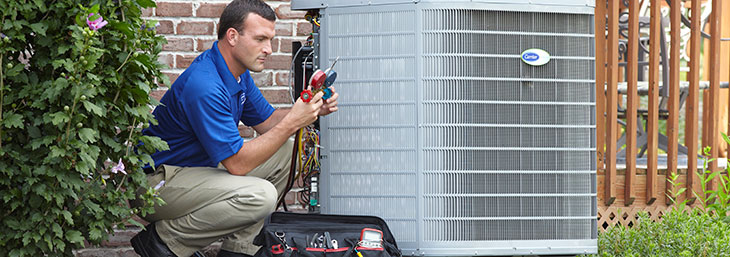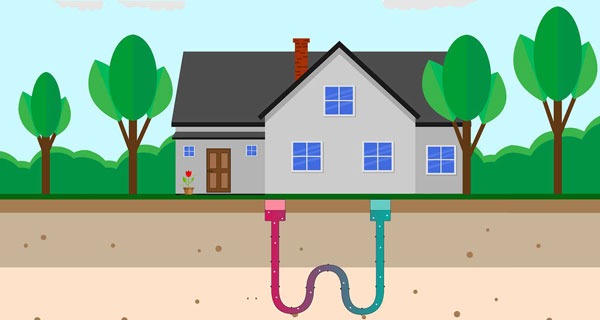
Posted: August 18, 2022 at 1:20 pm
By: Lakes Region HVAC
Over the years, heat pumps have become an increasingly popular choice for homeowners who are looking to upgrade their HVAC systems in New Hampshire. Many residents wonder if a heat pump will be sufficient for their heating and cooling needs, especially since they were historically known to be most effective in mild climates. Fortunately, manufacturers have developed new air source heat pumps that provide efficient and effective heating and cooling for homes and businesses in colder climates like the northeast.
Heat pump systems use the outside air to heat a home during the colder months and cool the home during the warmer months. Types of heat pumps include:
The most common type of heat pump, a ducted air-source heat pump is similar to a central AC in many ways. There is an indoor unit and an outdoor unit connected by a refrigerant line filled with fluid that transports heat between the two units. The compressor in the outdoor unit circulates the refrigerant while the indoor unit hooks up to the ducts in the home and has a blower that circulates the warm or cool air through the ducts.
These systems do not rely on ductwork to move warm or cool air through the home. There is an outdoor unit that connects to one or more air handlers installed throughout the home. According to Consumer Reports, ductless mini-splits tend to be more energy-efficient than ducted heat pumps because they avoid the energy losses associated with ductwork.
Also known as ground-source heat pumps, these systems absorb and release heat underground where temperatures remain at a constant 50-60 degrees F year-round. These are very energy efficient since they do not deal with the temperature fluctuations that air-source heat pumps do.

This is a relatively new type of heat pump that uses a thermal energy source and can be driven by heat sources such as natural gas, propane, solar-heated water or geothermal-heated water. Natural gas is the most common heat source for absorption heat pumps.
Insulation is important for every home, no matter what type of heating or cooling system you use but good insulation is especially important in homes that use heat pumps. Heat pumps provide a constant trickle of warm air, rather than blasts of heat every few hours, like traditional systems provide. Because of this, homeowners tend to notice cold spots and drafts more often. Another factor to consider is electrical capacity. Some homes, typically older ones, have an 100-amp (or sometimes even 60-amp) electrical service, compared with the modern standard of 200-amps. If you have a bigger heat pump, and use other appliances, it could trip your breaker. It is important to have a professional install your system to ensure you have a properly sized heat pump and that your panel capacity is compatible for the system you are utilizing.
Energy Efficiency
High Rebates
Fewer Repairs/Hidden Costs
Low Carbon Emissions
Variety of Types
Safety
Some Units are Costly and Challenging to Install
May Require Additional Heat Sources in Large Homes
Shorter lifespan (10-15+ years instead of 10-20+ years)
Come winter, if your heating system is blowing cold air, we have a blog for that as well!.
If this article is useful to you, or if you know someone who can benefit from it, please Share it.
Have another question? Contact the Lakes Region team, and we’ll find your solution.
Our clients are homeowners, small business owners, and corporations—and one could be you by calling 603-286-2290 or emailing info@lrhvac.com.
Lakes Region’s expert service technicians and installers are trained in the latest advancements in heating and cooling technologies. We'll help you select the correct comfort system for your home, ensuring that your equipment operates at the highest efficiency — giving you the lowest monthly operating cost.
Visit our website.
LRHVAC’s office hours: Monday - Friday
7:30-4:30
Phone: 603-286-2290
Mail: 86 Bay Hill Rd., Northfield, NH 03276
Email:
Email us